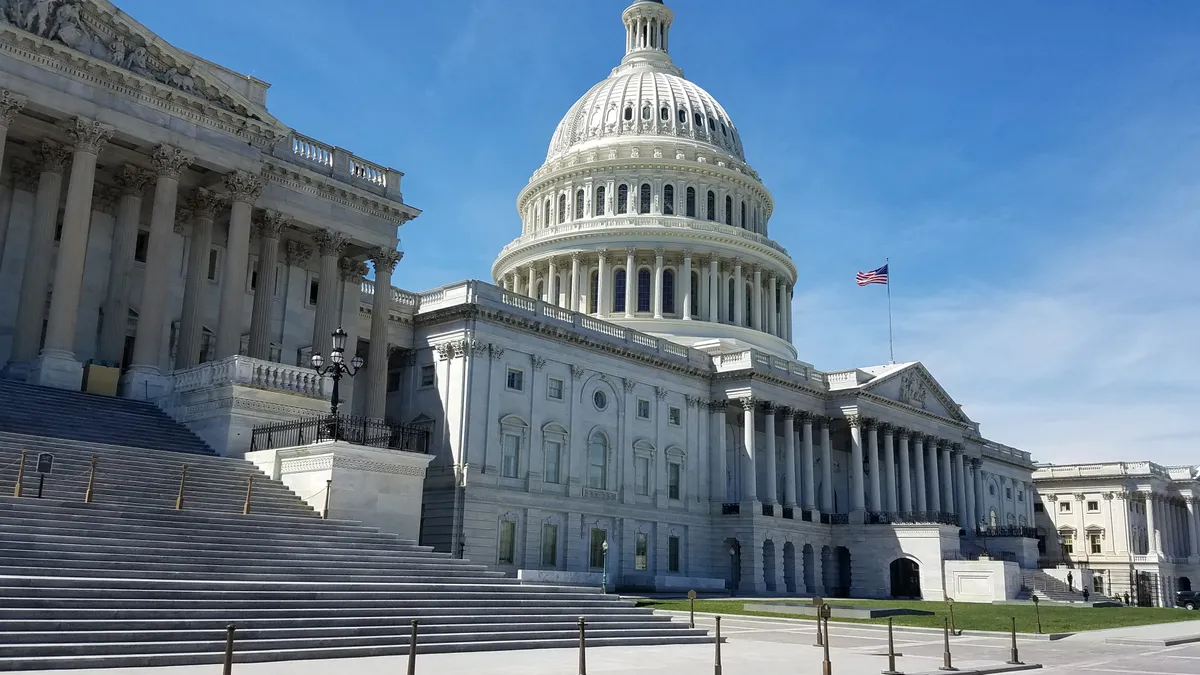Federal Reserve Chair Jerome Powell told House lawmakers Wednesday he expects “broad and material changes” to a contentious capital requirements proposal the central bank issued in July.
The comments came on a day the House Financial Services Committee made public a letter its chairman, Rep. Patrick McHenry, R-NC, and 28 other Republican lawmakers sent to Powell, urging the Fed and two other regulators to withdraw the proposal, which would require the biggest U.S. banks to hold roughly 19% more capital.
The Fed’s vice chairman for supervision, Michael Barr, is rewriting the proposal, Reuters reported Wednesday, citing industry executives and at least one government official. But it remains unclear whether the rewrite would result in an amended proposal, which may de-emphasize the taking of further public comments, or if the original proposal would be withdrawn and a new proposal submitted. The latter scenario would push the process back to its start and necessitate another public comment period.
McHenry, in his letter, pushed for the latter, which would almost certainly lengthen the rulemaking timeline. Republicans opposing the proposal favor drawing out the process, strategizing that extending it past the November presidential election would mean the Democrat-led rule would never take effect if a Republican is chosen to occupy the White House.
In any case, public comment on the capital-requirements proposal is far from lacking. The Fed is reviewing the nearly 400 public comments it received on the proposal, Powell said Wednesday, acknowledging that most commenters opposed it.
"Under your tenure as chair, can you identify any other regulatory proposal which has elicited this much dissent?" Rep. Andy Barr, R-KY, asked Powell on Wednesday, according to American Banker.
"No," Powell responded, characterizing the feedback as “voluminous and very substantive,” according to the Financial Times. "It's unlike anything I've seen.”
"We do hear the concerns," Powell said, according to Reuters. "I’m confident that the final product will be one that has broad support at the Fed and in the broader world."
Powell did not detail which parts of the proposal could be changed, but during Wednesday’s three-hour hearing, he mentioned the calculation of risk in mortgage origination, and highlighted derivatives clearing, especially with respect to agriculture commodities, American Banker reported.
Some lawmakers Wednesday asked Powell whether the Fed had appropriately considered the costs of changes to capital requirements.
Powell said the Fed is weighing how other regulations, including those on long-term debt, would be affected if capital requirements were to be re-proposed, according to Bloomberg.
The notion of changes to the proposal — in any form: withdrawal, re-proposal, amended proposal — sparked comment from industry stalwarts.
"We agree, broad and material changes are needed to the proposal to avoid significant harm to the economy, businesses of every size and American households,” said Kevin Fromer, CEO of Financial Services Forum, according to American Banker. “To achieve that, we continue to believe that a re-proposal is the best approach to giving the public a well-justified and data-based rule that is consistent with the plans of other jurisdictions."
Powell said the Fed has received a number of comments touching on the idea of re-proposal.
"I will say we haven't made that decision, but if, when we reach that point, that turns out to be the appropriate thing, we won't hesitate to do it," Powell said, according to American Banker. "It's a very plausible option.”
Powell also noted during the hearing that he has not yet discussed with Barr the option of withdrawing the proposal.
The nuance in Powell’s and Barr’s roles also spurred feedback from observers.
“The vice chair of supervision is supposed to drive the bus on regulatory and supervisory matters,” Ian Katz, a regulatory policy analyst at Capital Alpha Partners, told Bloomberg. “The truth is he drives the bus unless the chair and other members think he has gone too far off the main road.”
Kathryn Judge, an Obama-era Treasury official who is now a professor at Columbia Law School, called Powell’s comments on the notion of withdrawal “disheartening.”
“Modifying a rule in light of feedback is quite different than abandoning it entirely,” Judge said, according to Bloomberg.





















